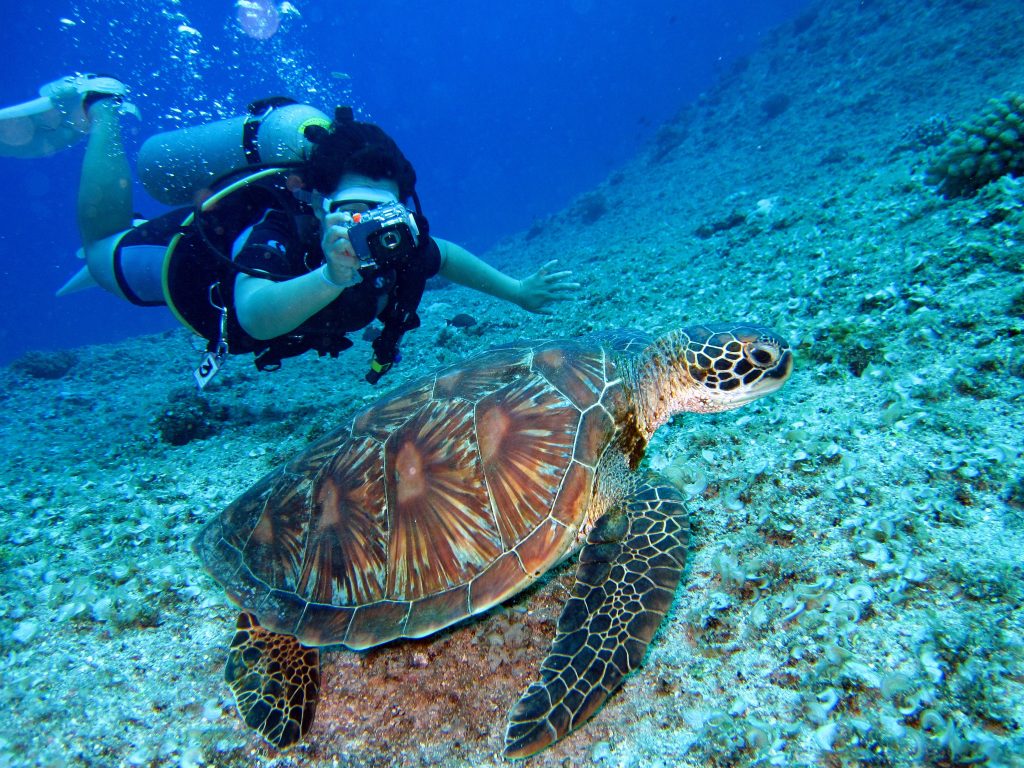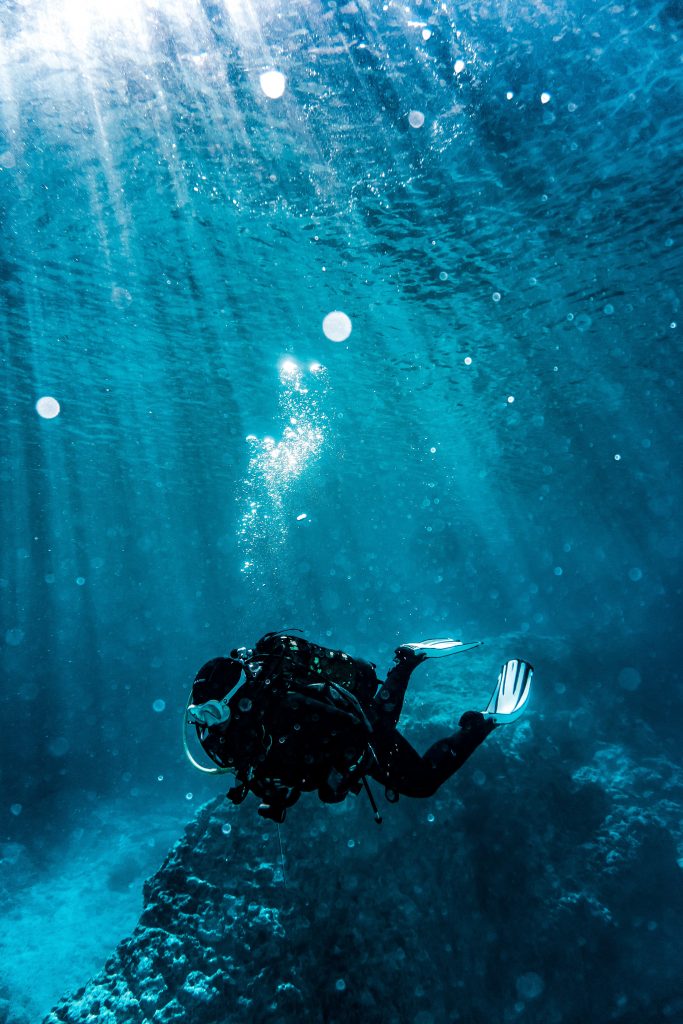In the article below, we will explore the job of a marine biologist, including the degrees and qualifications one needs to become one.
If you love marine ecosystems and life, this can be a great career choice.
Marine biologists study marine life.
They have various duties that can be different depending on the job.
The job can involve developing research and experiments, as well as making plans to help improve the lives of aquatic creatures.
Article Table of Contents
What Does a Marine Biologist Do
Marine biologists are scientists who study marine organisms.
Marine biologists work closely with marine life such as fish or whales, some may work primarily on marine life habitats.
The job of a marine biologist may vary depending on the type of species they work with.
For instance, if a marine biologist studies wildlife, they will work out in the field.
On the other hand, if they need to do research and study evidence, they will work in a research lab.
However, most biologists work in both areas.
Responsibilities
Even though the tasks of marine biologists vary, some common responsibilities include the following:
- Collect samples of marine biological material for analysis.
- Research content to improve discoveries in the field.
- Research the environmental evolution in the ocean.
- Research the behavior of marine life in the ocean.
- Research marine life depending on the ocean environment.
- Help restore the declining marine ecosystems.
- Create computer models to define the potential of marine ecosystems.
- Assist with the management of the coast guard and fisheries.
- Monitor marine environmental impact.
Essential Skills
Critical thinking:
Marine biologists need critical thinking to study marine life and come up with decisions concerning their life expectations as well as the ways to increase habitats.
Math and science:
Marine biologists need to calculate things and observe them from a scientific perspective.
Written and verbal skills:
Marine biologists need to write their research and present it eloquently.
Adobe Photoshop and Excel:
In the course of their research, marine biologists use these programs.
Gene Codes Sequencer and Visual Molecular Dynamics:
These two programs are essential for the research of marine biologists.
Skills working with centrifuges, pipettes, and microscopes:
To observe marine organisms and their habitats, marine biologists use such equipment as centrifuges and microscopes.
How to Become a Marine Biologist
It’s not easy to become a marine biologist.
First, you will need to earn a bachelor’s degree in marine biology at a respectable school.
Then, you can obtain either a master’s degree or a Ph.D. in marine biology.
After that, you can start an internship to later get an official job at a marine biology facility.
Training and Qualifications
Marine biologists need higher education courses.
First, it’s a bachelor’s degree.
Such programs can be found at multiple colleges and universities.
These programs cover biology, evolution, ecology, and other related subjects.
There are even more specialized courses.
If you enrolled in a school that doesn’t have a marine biology program, you can study it at specialized elective courses.
You can end your education at a bachelor’s degree.
With it, you can still find an entry-level job at a non-profit or government organization.
Alternatively, you can continue your education and pursue a master’s degree.
At some schools, you can find a program that incorporates both bachelor’s and master’s degrees.
There you can obtain the two within a shorter period.
In the program for a master’s degree, you will study lab methods, research equipment, and techniques, science writing.
There are also more specialized courses such as Pacific Ocean coral reefs.
Upon obtaining your master’s degree, you will determine the field of your specialization in marine biology.
With a master’s degree, you have a chance to get higher-paying jobs.
If you wish to start teaching at a university or work at an independent research facility, you will need a Ph.D.
The Ph.D. program includes such classes as marine microbiology or other specialized topics as well as an independent research project.
Based on your research, you will need to write a dissertation and present it to a Ph.D. advisory committee.
To graduate, you will have to teach undergraduate courses and then pass the examinations.
With a Ph.D., you can obtain even higher-paying jobs.
On the other hand, you don’t need any additional licenses or certifications.
Experience
It may seem impossible to get any work experience, but it’s not true.
Your academic experience plays a vital role.
You can get experience through research projects and internships.
It can be also helpful to network with others to land your first job.
The field of marine biology is highly competitive, however, it’s still possible to find an entry-level job with little work experience.
Working Hours
Marine biologists don’t really have a regular working day.
The reason for this is the variety of subject areas in the field.
An average day of a marine biologist can include anything from diving in the ocean or working in a lab to writing a report or doing computer work.
At some jobs, you may have to teach college students interested in marine biology.
Due to this, the schedule of a marine biologist can be abnormal and exceed 40 hours per week.
Career Outlook
The BLS predicts that the employment rate for marine biologists will increase by only 4% by 2024.
This percentage is lower than for other occupations in the US.
The field is highly competitive.
Most jobs are provided by the state and federal governments.
However, there are multiple private companies involved in the marine biology area, including aquariums and universities.
The average salary of a marine biologist was $59,680 as of 2015.
Marine biologists need at least a bachelor’s degree to enter the field.
If you wish to obtain a higher-paying job, you need either a master’s or a Ph.D.
In this case, it is worth investing your money and time to get a higher degree.
Conclusion
Becoming a marine biologist can be hard, but it is a highly rewarding career.
The job is interesting and exciting, so in the end, it is worth the effort and hard work.


I’ve always wanted to be a marine biologist and this article really helped thank you.